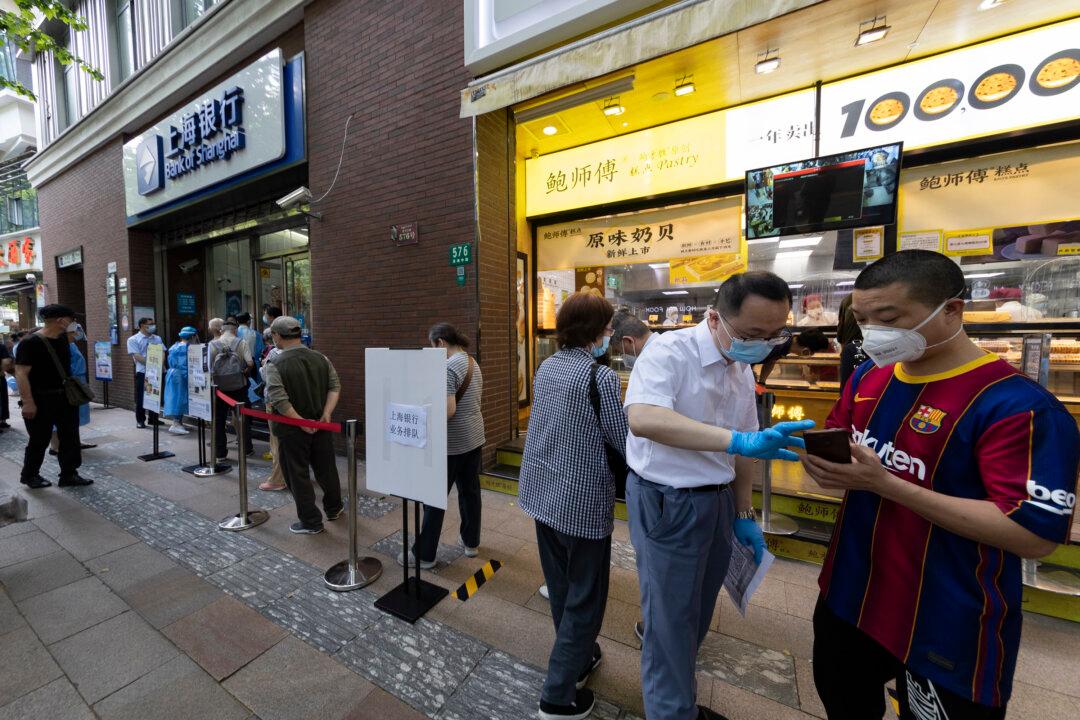After nearly one million Chinese people were unable to access their bank deposits in central China’s Henan province earlier this year, residents in east China’s Shanghai, south China’s Shenzhen, north China’s Dandong, and central-east China’s Jiujiang reported the difficulties they faced when trying to withdraw cash from their bank accounts.
Some banks will only serve a limited number of customers per day, some banks limit each client’s withdrawal to no more than 1,000 yuan (about $149), and others closed their branches. Even the ATM machines are empty.





